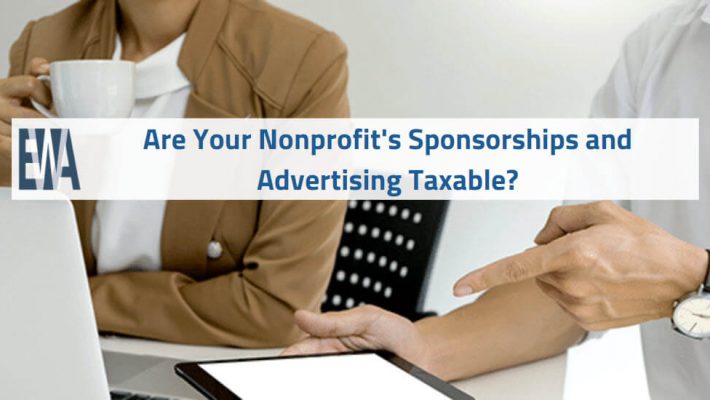If your nonprofit accepts advertising or sponsorships that aren’t related to your tax-exempt mission, you’re at risk of unrelated business income tax (UBIT) liability. These types of support have complicated rules that California nonprofit audit providers can help you understand. You still should have at least a basic understanding of what’s taxable versus nontaxable. Fuel your California nonprofit’s mission with strategic sponsorships. Unlock opportunities, build partnerships, and make a lasting impact on your community and beyond.
Sponsorships are generally nontaxable
Nontaxable sponsorship payments have to come from a sponsor engaged in a trade or business who isn’t expecting to receive substantial benefit from your nonprofit in exchange. Exempt organizations can use information that’s part of a sponsor’s public identity, like logos, slogans, and URLs.
Providing facilities, services, or other privileges to a sponsor (complimentary tickets, admission to golf tournaments, etc.) doesn’t automatically subject payment to UBIT. Generally, if the privileges aren’t a substantial benefit or are related to business, the payments are nontaxable. When the privileges are substantial or deemed unrelated to business, part or all of the sponsorship may be taxable.
A sponsorship would trigger UBIT if the amount depends on the attendance level at an event, broadcast ratings, or the quantity of public exposure received. In these cases, the IRS wouldn’t consider it a sponsorship, and your tax services will mark it down as nontaxable.
Advertising payments are taxable
If your nonprofit is paid to advertise a sponsor’s products or services, you’ll be subject to UBIT. Use nonprofit audit services to figure out if any advertising payments are escaping your notice, because anything that seems suspicious to the IRS may subject your nonprofit to an audit.
Advertising extends to:
- Endorsements
- Suggestions to buy, sell, or use products
- Messages containing qualitative or comparative language
- Price information
- Indications of value
Advertising doesn’t include:
- Using logos or slogans that are part of a sponsor’s public identity
- Distribution or use of a sponsor’s product at an event, whether for free or remuneration
There is a fine line between sponsorships and advertising
The distinction between qualified sponsorship and advertising is nuanced. So before you seek new income sources, seek an audit from a nonprofit audit provider. For a California nonprofit audit, contact Ernst Wintter & Associates.
